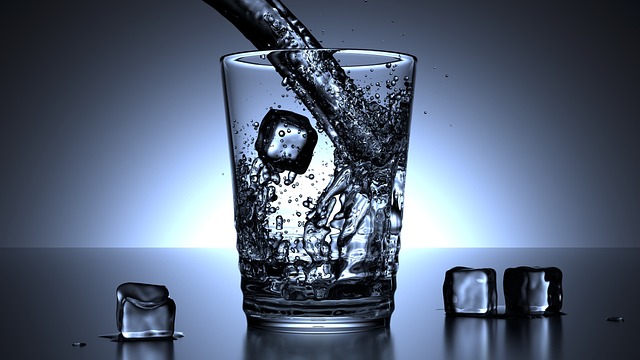You’re embracing the intermittent fasting lifestyle, powering through those fasting windows, and feeling fantastic.
But you may wonder, “Can I enjoy a glass of wine or a cold beer without sabotaging my progress?”
It’s a common question, and it’s worth exploring. After all, intermittent fasting is all about timing, and alcohol can have some surprising effects on your body.
So, before you pour that drink, let’s empower you with the knowledge of what happens when you mix alcohol with your fasting plan.
Understanding Intermittent Fasting and Alcohol Consumption
Intermittent fasting (IF) is about cycling between periods of eating and fasting. During fasting periods, you’re typically consuming zero or very few calories. This helps your body tap into stored fat for energy.
Alcohol, on the other hand, is loaded with empty calories and can disrupt your fasting state. When you drink, your body prioritizes breaking down the alcohol over burning fat, which can stall your progress.
The bottom line is that drinking alcohol while fasting will ruin your fast.
In light of this, alcohol can affect your metabolism.
It slows down the liver’s ability to process other nutrients, making it harder for your body to manage blood sugar levels and store fat.
There’s also the temptation factor.
A drink or two can lower your inhibitions, leading to late-night snacking or overeating, especially on calorie-dense foods.
Yet, it’s not all bad news.
Enjoying alcohol in moderation, ideally during your eating windows, can be manageable. Balance and timing are essential, and your guiding principles are important here.
Understanding these dynamics will help you make informed decisions about your fasting and drinking habits, allowing you to stay on track without feeling deprived.
Effects of Alcohol on Fasting State and Metabolism

When you consume alcohol during your fasting period, it rapidly breaks your fast.
Alcohol contains calories, and any intake of calories while fasting stops the benefits of the fast. Your body immediately switches from burning stored fat to metabolizing the alcohol.
Impact on Metabolism
Alcohol can significantly slow your metabolism. Your liver focuses its efforts on processing alcohol, which can interfere with its ability to manage other metabolic tasks. This shift can result in reduced fat-burning and a sluggish calorie-burning process.
Additionally, alcohol impacts hormone regulation, altering levels of insulin and glucose in the bloodstream. This can lead to spikes and crashes in blood sugar levels, often stimulating hunger and cravings, making fasting more difficult.
Disrupting Ketosis
For those practicing intermittent fasting to achieve ketosis, alcohol consumption can be a hurdle.
Alcohol breakdown is prioritized, which means it can disrupt the state of ketosis, a metabolic state where your body uses fat for energy instead of carbs.
Causing Dehydration
Alcohol’s dehydration effect shouldn’t be neglected. It can leave you feeling thirsty and mistaking thirst for hunger, potentially leading to additional calorie consumption and unintentionally breaking your fasting cycle.
Moreover, alcohol can disrupt your sleep, which is crucial for the fasting routine and overall health.
Understanding these challenges can help you navigate your fasting routine more effectively and make smarter choices about alcohol consumption.
Strategies for Minimizing the Negative Impact of Alcohol

Navigating alcohol consumption can be tricky, but with a few strategies, you can minimize its negative impact.
Choose Wisely
Opt for lower-calorie alcohol options like wine or spirits over high-calorie, sugary cocktails. This can help reduce your calorie intake while still allowing you to enjoy a drink.
Hydrate, Hydrate, Hydrate
Drinking water before, during, and after alcohol consumption can help counteract alcohol’s dehydrating effects. This also helps to mitigate hangover symptoms and curb any misleading hunger pangs.
Moderate Consumption
Excessive consumption can exacerbate negative impacts on your metabolism and fasting goals. Stick to moderate drinking guidelines, which mean up to one drink per day for women and two drinks per day for men.
However, it’s important to note that these are general guidelines, and individual tolerance may vary.
Eating and Drinking
If you know you’ll be drinking, try to plan it during your eating window. Consuming alcohol on an empty stomach can spike your blood sugar and make fasting more challenging.
Eating a balanced meal beforehand can help stabilize your blood sugar levels.
Be Aware Of Your Body
Be mindful of your body’s signals. If alcohol significantly disrupts your fasting schedule or overall health, consider reducing your intake or seeking other social activities that don’t involve drinking.
Listening to your body is vital, a sign of respect for its needs, and a key to maintaining a successful fasting routine.
Best Practices for Drinking Alcohol While Intermittent Fasting

Balancing intermittent fasting with occasional alcohol consumption doesn’t have to be a headache. Here are some best practices to help you manage both seamlessly.
Timing is Everything
Try to align your drinking with your eating window. This way, you can pair alcohol with food, which helps reduce its negative impact on your body and maintains your fasting schedule.
Avoid Sugary Mixers
Instead of reaching for sugary mixers, choose healthier alternatives like soda water or a splash of lemon. This minimizes calorie intake and helps keep blood sugar levels stable.
Moderate Your Intake
Keep your alcohol consumption to moderate levels. Overindulging can lead to spikes in blood sugar and disrupt your fasting routine. Stick to one or two drinks, depending on your personal guidelines.
Stay Socially Conscious
Inform your friends or hosts about your fasting schedule if you’re attending social events. This way, you can enjoy your time without feeling pressured to drink excessively.
Listen to Your Body
Pay close attention to how your body reacts to alcohol during fasting periods. Some people may feel fine, while others might experience adverse effects. It’s essential to understand your own limits.
Prepare for Recovery
Have a plan for the morning after. Drinking alcohol can sometimes mess with your next fasting period, so preparing for recovery with plenty of water and nutrient-rich foods can set you back on track swiftly.
Following these best practices allows you to enjoy the occasional drink without derailing your fasting goals.
Remember, it’s about balance and listening to your body’s needs.
The Bottom Line on Drinking Alcohol During Intermittent Fasting
Finding the balance between enjoying alcohol and sticking to your intermittent fasting goals can seem tricky, but it’s definitely doable.
The key lies in moderation and intelligent choices.
Remember, drinking alcohol will ruin your fast. Plan accordingly.
Timing your drinks within your eating window, opting for low-calorie mixers, and being mindful of your alcohol intake are great strategies for staying on track.
Always listen to your body and be aware of how it responds to alcohol when you’re fasting.
Communicating your fasting routine in social settings is essential. This helps you stay committed and allows others to support your goals. Don’t feel pressured to drink more than you’re comfortable with.
Preparing for recovery can make a big difference, especially after a night out. Hydrate well, get enough rest, and fuel your body with nutritious foods to bounce back swiftly.
Moderate and mindful drinking can coexist with intermittent fasting. You can enjoy the best of both worlds by making informed choices and staying attentive to your body’s signals.
So, mindfully raise a glass and confidently continue your fasting journey. Cheers to finding that perfect balance!
